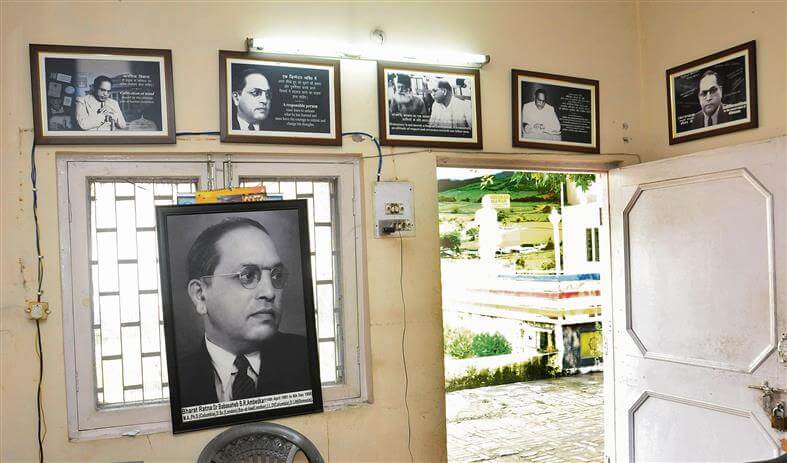– Arjun Garg Adv. and Sagun Srivastava Adv.
Introduction
The Hon’ble Supreme Court of India in Janhit Abhiyan vs. Union of India[1] upheld the 103rd Amendment to the Constitution of India by 3:2 majority where Hon’ble Justice Dinesh Maheshwari, Hon’ble Justice Bela Trivedi and Hon’ble Justice Pardiwala upheld the Amendment, whereas, Hon’ble Justice S Ravindra Bhat had a dissenting view, concurred with by the Chief Justice of India Hon’ble Justice U.U Lalit.
The 103rd Amendment[2] to the Constitution of India introduces 10% reservation for the Economically Weaker Section (‘EWS’) in admission to educational institutions and government jobs which keeps out the reserved categories[3] which have already been granted reservation under SC/ST and OBC category.
The bone contention raised in the present matter were regarding the exclusionary clauses contained in Article 15(6) and Article 16(6) keeping out the backward classes and SC/STs from benefits of reservations is discriminatory which also violates the basic structure of constitution in view of the code of equality. However, this landmark judgement has taken reservation out of the narrow lane of caste backwardness to the alley of economic backwardness considering the fact that poverty is not caste based, but socio-economically conditioned.
An insight into justice Trivedi’s concurring opinion
Justice Bela Trivedi, concurring with the majority view upholding the EWS Quota has opined that the Preamble also visualises to remove economic inequalities and to provide economic empowerment to the weaker sections of the society. Moreover, any positive discrimination in favour of the weak or disadvantaged class of people by means of a valid classification has to be treated as an affirmative action considering the social engineering of the society.[1]
Justice Trivedi has also parted her comments in the judgement stating that at 75 years of independence there is a need to revisit the system if reservation in the larger interest of society as a whole with regards to having time span for reservation policies in the country, as, in her considered opinion, framers of the Constitution has envisaged an ideal of egalitarian, casteless and classless society which must be aimed to be achieved.
In actuality, Balancing merit with positive discrimination towards SC/ST/OBC has witnessed a rare synergy between government policy and judicial approval, however, the opinions pronounced by the Hon’ble Supreme Court of India has expressly provided that economic criterion is worth applying by refusing preferred treatment to those amongst them who have already benefitted by it and improved their position. Reservation must have a time span as otherwise concessions tend to become vested interests.[1] It was also held by the Hon’ble Supreme court that reasonably, an affirmative action such as reservation cannot be for an indefinite period of time, more so if there is no review after a reasonable period of the continued period the country will become a caste divided society permanently.[2]
Justice Trivedi, in conclusion was also of the opinion that time limit if prescribed to the special provisions in respect of reservations and representations provided in Article 15 and Article 16 of the Constitution, would be a way forward leading to an egalitarian, casteless and classless society.
Conclusion
In my considered opinion, Justice Trivedi’s vision of leading to an egalitarian, casteless and classless society is idealistic and every step possibly to be taken with regards to the same must be welcomed. However, such ideals cannot practically be achieved in the near future or by means of amendments in law in haste. It will take a significant amount of time to untie the knot of years of effect that reservations had on the social structure of our country.
Moreover, It also cannot be concluded that reservations have only been a poverty alleviation scheme or for removing economic inequalities in the society. Although, prima facie there can be no infirmity in the notion of economic backwardness qualifying for reservation against a caste based reservation.
Reservations in all is a tricky terrain as balancing the merit with positive discrimination towards economic backwardness. When, three criteria identified for backwardness by the Mandal Commission is identified as social, economic and educational. In view of the aforesaid, EWS Reservation could be considered as horizontal in nature whereas caste based reservation are vertical in nature.
It may be relevant to mention that concept of class is also linked to the economic criteria or poverty line. The Marxist logic of class conflict is predicted economic criteria of people who are exploited by capitalists. However, the hopes of vulnerable and disabled section still remaining trapped in disillusionment and despair is a shining testimony of the fact that the social structure is far more complex in the country and promotion of equality must be backed up by social considerations and strictly against the politics of reservation for the good.
Justice Trivedi’s opinions are based on doctrine of affirmative action as the Preamble of our constitution is predicated on “socio-economic justice for all” and directive principles of state policy which implores the state to undertake ‘distribution of national resources to sub serve common good’ and reduce inequality in income and upholding the 103rd Amendment was justified in light of the aforesaid doctrines. Moreover, poverty cannot be linked to caste.
It cannot be denied that a privileged pool has been created within SC/ST, whose scope has not been widened significantly. Reservations have also created an elite class amongst SC/ST. However, OBC cannot be included in the subset of the aforesaid. It can be said that a vision of casteless society in the country is of far reach and it does not seem attainable in the near future, as in the present political unanimity or politics of reservation is based on harvesting political fortune rather than promoting efficiency and higher growth in India.
Timeline however with regards to reservation of economically backward classes holds less relevance as, when through the said reservation a set of people belonging in the standard criteria would be lifted out of the quagmire of poverty overtime then consequentially, they would not be able to be benefitted, although, the same concept cannot apply to the caste based reservations. Hence, time span for caste based reservations can be considered.
Thus, promoting equality of opportunity for human capability development will always be in favour of transparency and fairness in a democratic set up like ours. As, also considered by Justice Pardiwala that Baba Saheb Ambedkar recognised fraternity as a necessary principle for the survival of Indian democracy. He defined it as the essential attitude of respect and reverence towards fellowmen which can also be termed as common brotherhood of all Indians.[1]
It is conclusive to say that, Justice Trivedi’s views are most certainly focused on the present contours of society and the practice of positive discrimination which is intrinsic to the idea of equal opportunity. Moreover, revisiting the crutch of reservation in the larger interest of society as a whole, after 75 years of independence cannot be said to be against the idea of transformative constitutionalism.
[1] 2022 SCC OnLine 1540
[2] Enacted on 09.01.2019 amending Articles 15 and 16 by inserting Article 15(6) and 16(6). It received the presidential assent on 12.01.2019.
[3] Classes mentioned under Article 15(4), 15(5) & 16(4)
[4] State of Kerala vs. N.M Thomas (1976) 2 SCC 310; Chebrolu Leela Prasad Rao vs. State of A.P (2021) 11 SCC 401
[5] K.C Vasanth Kumar vs. State of Karnataka (1988) 4 SCC 590
[6] Ashok Kumar Thakur vs. Union of India
*Arjun Garg is the Managing Partner of GSL Chambers and an Advocate on Record of the Supreme Court of India and Sagun Srivastava is an Associate at GSL Chambers.




